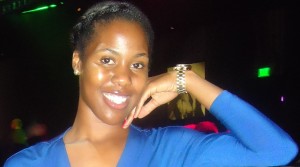
By: Tavia Record
Editor, On the Record
Orlando Central Florida Chapter, STC
tavia@stc-orlando.org
***The views expressed in this interview are personal. They do not necessarily represent the views of Lockheed Martin.
Alex Garcia, also known as the “Rocket Writer” because he actually is a rocket scientist and a technical writer, leverages his combined background in engineering technology to provide documentation solutions at Lockheed Martin as a technical writer and instructional designer in Mission Systems and Training.
Alex has been the treasurer of the Orlando Central Florida Chapter of Society for Technical Communication since June 2013 and also has experience as the chapter’s newsletter editor of Memo to Members.
T: Dispel three myths about technical communicators
A:
- We hate math – Not true! I’m proof.
- Extroverted Technical Communicators do not exist – Actually we do, and we thrive in the workplace.
- You need expensive tools to learn how to code – This is certainly not the case. Anyone can start coding and documenting code using by using Notepad in Windows.
T: How would you describe what you do, and how did you come into this profession?
A: Right now, I take buckets of complex information from engineers, sift it, organize it, and edit it into a concise operations and maintenance manual according to very stringent military standards. These manuals are used by our men and women in uniform to run some pretty intricate machines.
When called upon, I design and write scripts for computer based training. This involves choosing the screen layout, images, animation, and then managing the production of the courseware with a team of artists and developers.
I came to be a technical communicator partly by need of some sanity as a sophomore engineering student at the University of Central Florida. My English Composition II professor, Mary Ellen Gomrad, was also a technical communication professor, and encouraged me to take the introductory technical writing course, which lead to me eventually pursuing the minor, and then completing the Technical Writing track of the English degree in addition to my degree in Engineering.
I landed an opportunity to work for five years as an engineer at the Kennedy Space Center where I witnessed the Space Shuttle project to completion in 2011.
Through my connections with the Orlando Chapter of STC, I learned about a contractor position at Lockheed Martin Missiles and Fire Control within 10 days of completing my assignment at the Kennedy Space Center.
T: What does your job entail as an instructional designer, and how does this role differ from your work as a technical writer?
A: Instructional Design is just that—design. It is multidisciplinary and entails adult educational theory, writing, editing, quality assurance, and light graphical skills. Unlike a manual, you need to test your user to verify that they retained what you taught earlier. You also get the chance to flex your creative muscle and bring in multimedia to improve your presentation of information.
T: Describe the relationship you would advise young technical communicators to foster with their Subject Matter Experts (SMEs).
A: Don’t be afraid to get out of your cubicle and go down on the floor. Get your hands dirty and show that you are a part of the team. Sit in on planning meetings, design reviews, and just try to absorb as much information as you can.
T: How would you define a Technical Communicator? What makes us tick?
A: We are Technical Communicators, emphasis on the word TECHNICAL. We are geeks, understand technology, and have the desire to bring that technology (or a description/review of it) to the masses in a way that they can understand. We are the type of people who read live blogs of Apple and Google keynotes like it is Christmas morning.
T: Can a person’s interests, experiences, or involvement outside of the common technical fields of engineering, software development, and information technology help them in their work as a technical communicator?
A: Absolutely. Nowadays, anyone can start a blog and write about whatever they want. The aforementioned keynote addresses usually result in hundreds of blog articles about highly technical specifications of new gadgets. Those authors break that information down into information Joe Q. Public can understand. My philosophy is that everything we are involved in has its own jargon and someone, somewhere, wants to learn more about it. That’s where we come in.
T: Let’s talk software! What are you currently using in your work projects? What are some of the strengths and learning curves you’ve observed while using it? Would you recommend it to other technical communicators?
A: Unfortunately, in the defense industry our customer expects deliverables in PDF and MS Word. It is pretty vanilla, but that’s not to say I can’t do some pretty awesome things with MS Word styles and templates.
Some of my team is starting to organize workflows in Atlassian Jira, which is an agile content management system.
T: How have you used your ability to speak both English and Spanish in your work as a technical communicator?
A: I hope to incorporate more of this in the near future as language breaks down barriers and enables connections to be fostered with end-users in various countries and or continents.
T: If you could commit to making it possible, describe your dream-come-true role in the technical communication field.
A: It would be a position where I can blend my engineering background with my writing skills to make information available to the widest audience possible. I want to go down to the shop floor to work alongside technicians and engineers to help optimize their documentation. I don’t need a fancy office; I could be embedded in a far-flung facility as long as my work matters.
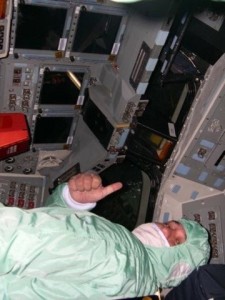
T: Why do you value your membership in STC?
A: I love the way STC provides a platform for me to mentor, network, and socialize. Sometimes my work schedule can make it challenging for me to get out and meet new friends. The monthly events that the chapter hosts allow me to connect with new people and build friendships. Some of my best friends are people I see at STC meetings.
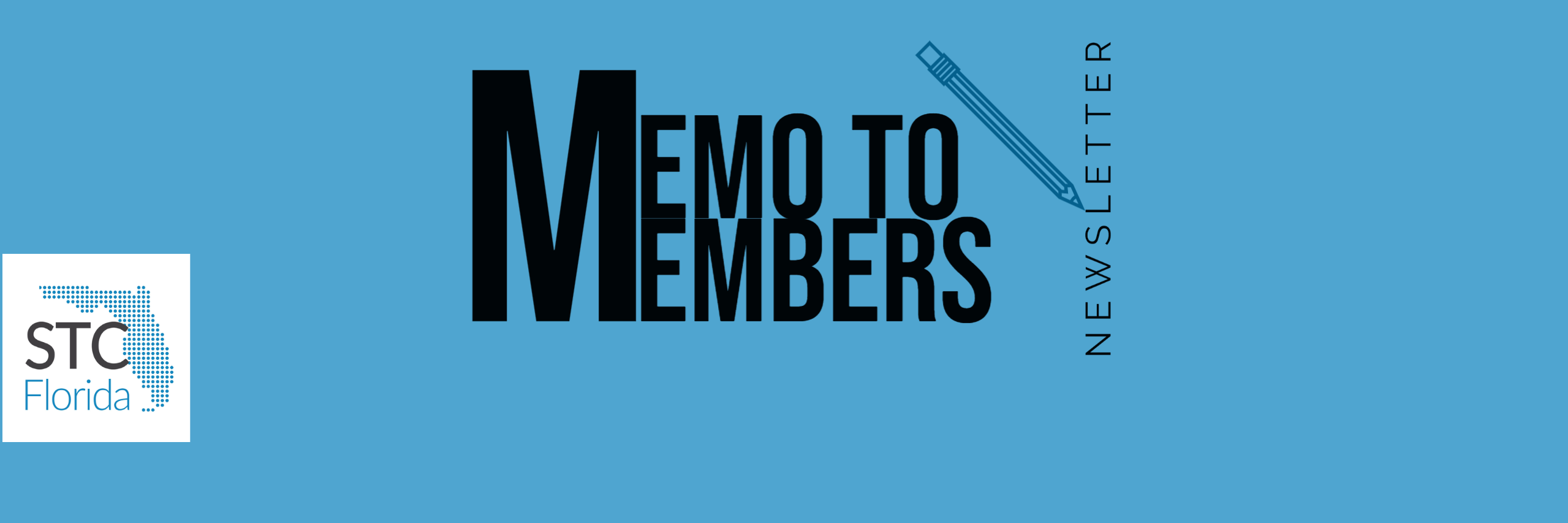
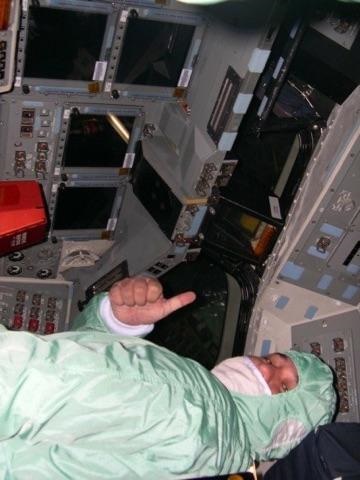
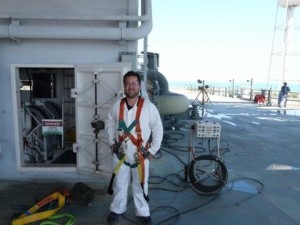
Just thought I would chime in to state that a document Alex made while studying at UCF (“You know you’re a Tech Writer if…”) helped to inspire me to give Tech Comm a try, and I haven’t looked back since.
He’s a standup guy and incredibly intelligent. Great article!